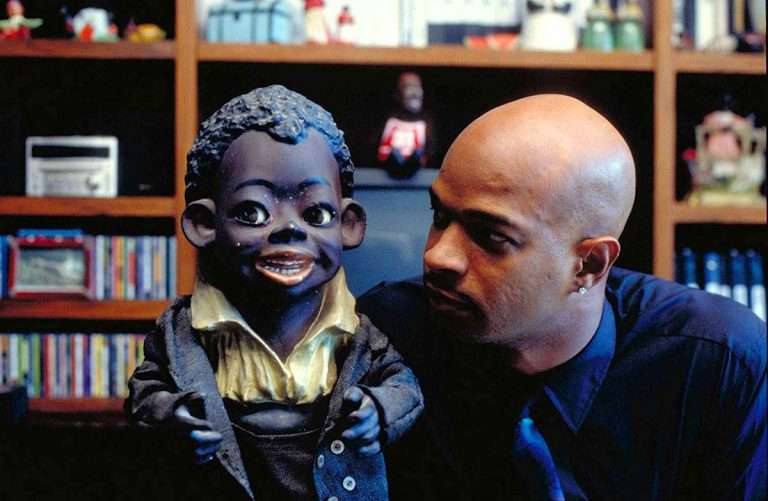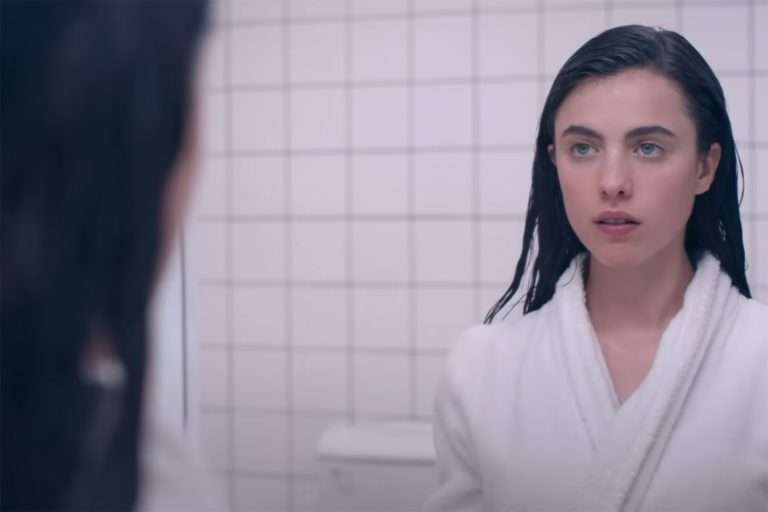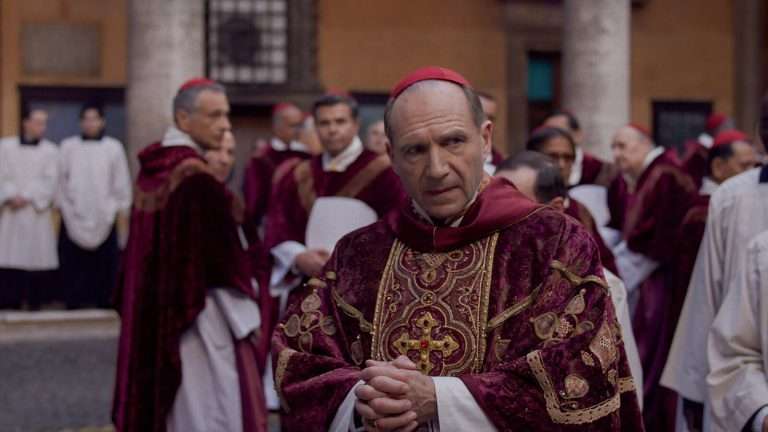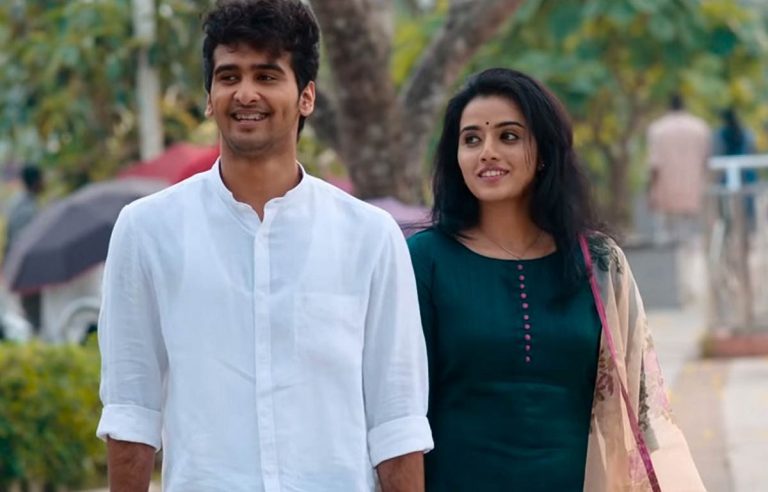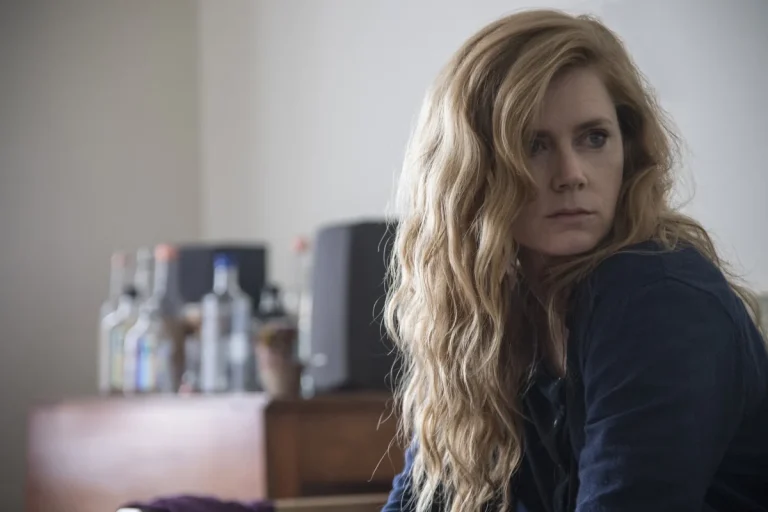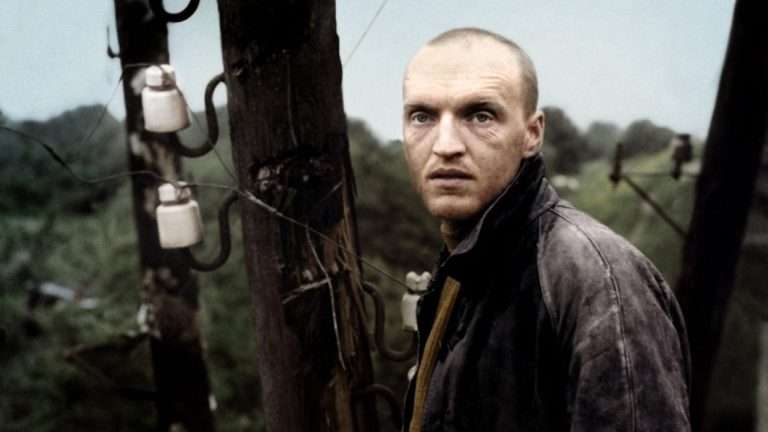The opening image of “Dekalog: Eight” (1989) shows a child holding the hand of an adult, both running across an alley. The handheld camera movement suggests urgency, stealth, or perhaps escape. Other than that, no context of the action is betrayed, nor are we told who the child and adult are. We cut to an old lady exercising in the garden of the Warsaw apartment building where she and the protagonists from the other episodes of “Dekalog” live.
This is Zofia (Maria Koscialkowska), an old ethics professor at a university. We follow her as she finishes exercising and returns home to do her morning rituals before heading to work (she has a picture on the wall in her bedroom that just won’t stay straight!). At university, Zofia meets Elzbieta (Teresa Marczewska), a New Yorker of Polish descent. She is a researcher on Jewish survivors of the Holocaust and has also translated several of Zofia’s works into English. Zofia requests to sit in one of the Professor’s lectures, and her wish is granted.
The following events of the film present to us that Elzbieta herself is a Holocaust survivor and that Zofia, a catholic in occupied Poland, had the opportunity to save her by acting as godmother of this little Jewish girl but backed off at the last moment because doing so would be the equivalent of ‘bearing false witness,’ even if it was done for the saving of a child. Suddenly, the opening image of the child being led by an adult through a deserted alley comes to life, charged with emotion. We know now who the child was.
Kieslowski’s “Dekalog” consists of ten one-hour television films, each based on one of the Ten Commandments. This episode of “Dekalog” deals with the commandment ‘Thou Shall Not Bear False Witness Against Thy Neighbor.’ Kieslowski’s direct charge is evident through the character of Zofia, who follows the Commandment even at the expense of a child’s life. The fact that the child survived and can confront the devout follower of this moral system that pushed her under the bus is a stroke of fortune; other children like her were not afforded this.
In perhaps the rarest, most unexpected move of the series, this episode directly references a previous episode through a student of Zofia, who narrates a story of a doctor’s ethical dilemma that is eerily similar to the plot of “Dekalog II.” When the student finishes, Zofia responds with, “Warsaw is a small town; the most important thing is that the baby is alive.” This latter superlative assertion is what triggers Elzbieta to tell her story, as she later reveals: “I tried to tell you several times, even wrote letters, but I couldn’t…if it hadn’t been for those few words about the baby, I’d never have”. This is an interesting development of the story, as the whole flow of events as they unfolded was dependent upon the story of the doctor, who had to live in the same apartment building as Zofia so Zofia and Elzbieta could meet and eventually reconcile.
Annette Insdorf, in her seminal work ‘Double Lives, Second Chances: The Cinema of Krzysztof Kieslowski’ writes that Zofia is connected to the doctor of “Dekalog II” because both are confronted with the problem of ‘bearing false witness’ to save the life of a child. However, one must immediately recall Zofia’s remark to the student who narrated the doctor’s story in her class: “Try and present an acceptable point of view of the woman; try and understand her.” Of course, she is talking to the student but addressing Elzbieta. Suppose Zofia has much in common with the doctor. In that case, she is closer to Dorota, the woman in “Dekalog II,” who must have an abortion in order to save her marriage, except that the fates of the two women play out differently.
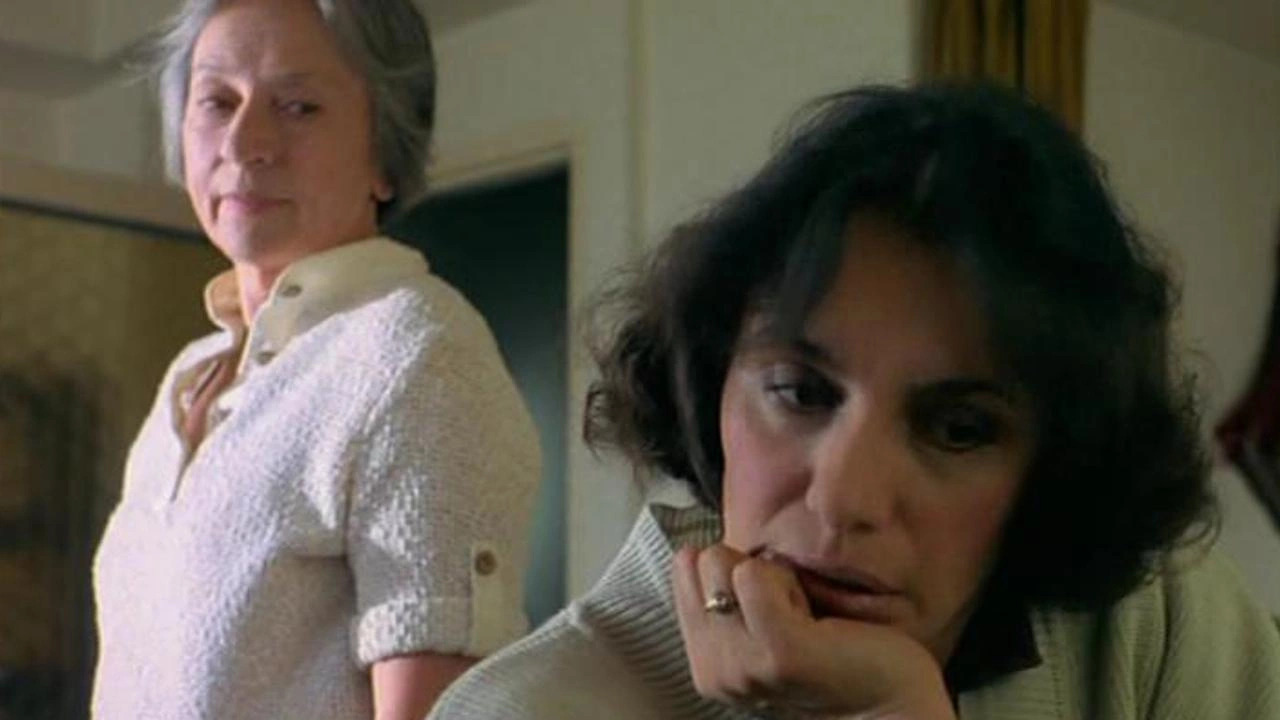
The doctor prevents the abortion by lying to the woman, and her husband recovers from the pits of hell of terminal illness, thereby both lives being saved. However, the story’s unsaid, tragic ‘third act’ is delivered six episodes later in Dekalog VIII. The fact that the incident became so popular that it was talked about in an ethics class by complete strangers is enough to give us a glimpse of the problems that the family might be facing. But as Zofia later asserts, “no idea, no problem, nothing is more important than the life of a child.” However, she herself hesitated to act upon this superlative when it mattered, opening the question of whether there are indeed things more important than the life of a child.
Zofia drives Elzbieta to the house where the fateful event occurred on the chilly World War II night when little Elzbieta was coldly turned back to the streets with nowhere to go. On this similarly, chilly night, Elzbieta, now a grown woman, revisits this place. What follows is a uniquely Kieslowskian drama: Elzbieta, on her way back to the car where Zofia is waiting, freezes by the gate and hides in the darkness. After waiting a while, Zofia gets worried and enters the apartment, calling after her. She goes up to the exact flat where she used to live back then. Now, five families live there, but no sign of Elzbieta.
After searching the whole building, worried and out of breath, she returns to the car to find Elzbieta already sitting inside. “Oh god, I’ve been looking for you… I was frightened that you had never been here at all”. If Zofia brought her to the place, Elzbieta took her back to that night. They go back to their apartment, where Zofia pours tea for Elzbieta, fulfilling the incomplete activity of that night when little Elzbieta couldn’t have tea because she’d have to leave before curfew fell. Here, Zofia tells Elzbieta the real reason she betrayed her: that they were given false information that the person she was going to be adopted by was an SS officer.
By essentially reliving the night, this time with another flow of events, the two characters are given a second chance, a window to catharsis and reconciliation. Zofia finds closure in the fact that the girl survived, and Elzbieta knows the real reason why she was betrayed. If “Dekalog IV” is a harrowing ‘dark night of the soul,’ VIII is the darkest hours of the night under the warmth of the full moon’s light.
Humiliation is a recurring theme explored throughout this episode that isn’t in others. Elzbieta speaks of a ‘special nature’ of ‘rescuers’ and the subsequent special nature of ‘the rescued,’ later talking about the humiliation she felt in the presence of the apartment building, the witness to her helplessness as she was turned away that night as a little girl. “Why must some people be rescuers, and some always the rescued?”
When Elzbieta recalls her story in class, the camera pans left until it stops at ‘the young man,’ a recurring stranger with an ambiguous nature who appears in all but two episodes of “Dekalog,” and he looks directly at the camera, presumably at Zofia; he is the “silent witness to the professor’s hidden humiliations,” as Insdorf recalls. What is interesting about this cameo of Artur Barcis (the actor who plays the ‘young man’) is that his presence, unlike the rest of his appearances in the other episodes, is unaccounted for. That is, he is not in the class until before this point and only appears seated among students after the class is interrupted by a drunk student who violently flings the door open.
Did the ‘young man’ fly into the class behind this drunk? Is he really an angel or devil, as some have said? He is the witness to our humiliations; he catches us at our worst times. But even in his gaze, there is no judgment. Kieslowski says of him, “he sees us, and he’s not very pleased with us.” This young man observes us not like a god, from the distanced vantage point of his moral high horse, from where he decries his Commandments. The young man is here with us. He sees us and doesn’t know what to make of us. There is pain, compassion, and confusion, sometimes tears, too, in his eyes. He is the alternative to God, whose superior moral system is useless in this life, or in the words of Zofia, he is Loneliness.
And what does one make of the scene in which Zofia, looking for Elzbieta, rings the doorbell of the very house in which she once lived, from where she turned little Elzbieta away? Five families are now crammed into and live out of that single house. Is Kieslowski not highlighting here the humiliation of the Polish fate that first saw the Nazi wrath only to be replaced with the Soviet inhumanity.
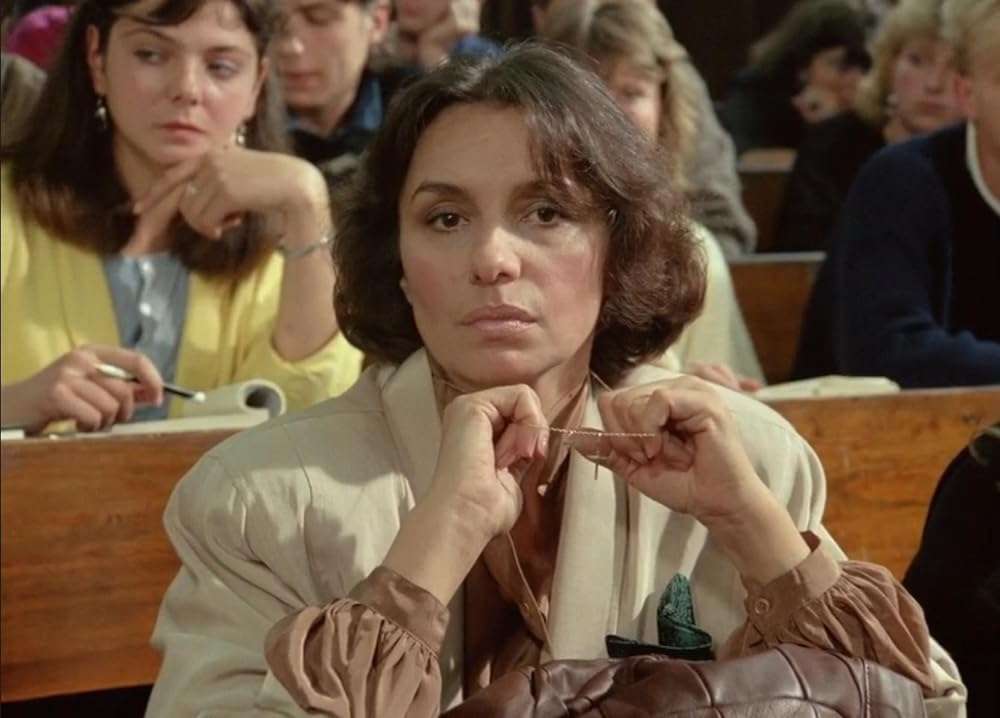
Insdorf asserts that Zofia can be seen as a stand-in for Kieslowski in what is the most blatantly philosophical episode of the whole series. When Elzbieta asks, “Who is the judge of good and evil?” Zofia responds, “he who is in all of us,” and when asked about her spirituality, she says eloquently, “I’m not a church, I don’t use the word ‘god.’ Man is free to choose, to leave behind God if he likes”. This pretty much sums up Kieslowski’s battered, sardonic, but eventually compassionate hope in humanity that life is still worth living despite everything.
The following day, while exercising, Zofia encounters a curious character: a contortionist so flexible he can bend his limbs and body in unimaginably painful ways. He initially encourages Zofia to do it but quickly concludes, “No, you can’t. It’s too late now. You can’t do it, sorry.” As with other instances of dialogue in the film, this one is too ripe with subtext, like the ever-flexible god himself coming down and telling her, “It’s too late.” This foreshadows the most tragic part of the story. Zofia has promised Elzbieta to take her to the man who was going to adopt her during the war, the man who was imprisoned and tortured in the 1950s on suspicions of having collaborated with the Nazis, the ultimate victim of the ‘thou shall not bear false witness’ commandment.
When Elzbieta enters, he offers to make her a dress. He immediately makes it clear that he will not talk about the war. He does not give her a chance, and he doesn’t say much, but his eyes say everything. The subtext here is heavy in what is not said. When he offers, Elzbieta wants to make her a suit from one of the fashion magazines, and she tells him, “These fashion magazines are very old; would you be offended if I send you something more recent?”
Still looking down, he replies, “No, I got this one from abroad too, but it was many years ago… afterward, there was no opportunity.” Even in his new profession as a tailor, he is still humiliated. In less than five minutes spent with the man, we know the extent to which he is utterly broken. He is the embodiment of something that was lost forever that night in the war, something that cannot be reconciled. It is indeed too late now.
In the film’s final images, the tailor looks through his shop window, a signature Kieslowski shot, at Elzbieta and Zofia’s embrace. The glass signifies the separation and the blocking off by the tailor, the catharsis that was allowed by Zofia, and even Elzbieta. The tilted frame on the wall in Zofia’s apartment that would never stay straight despite so many attempts and Zofia’s failure to bend like the contortionist due to her age (it’s too late) are other symbols in the film, whose ultimate culmination is the tailor, signifying the permanent nature of loss, that some things cannot really be undone or mended.
If “Dekalog I” informs the viewer of the tone and solemnity of the rest of the episodes, VIII is just as good an entry point into the series that readies the viewer of what to expect. Anyway, just like the Ten Commandments themselves, the order of the episodes barely matters, especially in the rewatches.

